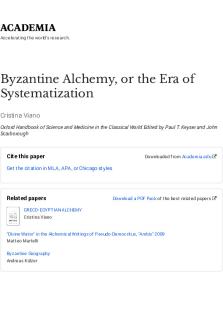Of Plymouth Plantation, 1620-1647Review - Moby-Dick, Or, The Whale PDF

| Title | Of Plymouth Plantation, 1620-1647Review - Moby-Dick, Or, The Whale |
|---|---|
| Course | StuDocu Summary Library EN |
| Institution | StuDocu University |
| Pages | 3 |
| File Size | 91 KB |
| File Type | |
| Total Downloads | 9 |
| Total Views | 125 |
Summary
Of Plymouth Plantation...
Description
Review: Of Plymouth Plantation 16201647, by William Bradford Of Plymouth Plantation is an account of the trials and tribulations endured by the Separatists (Christians who wanted to separate from the Church of England) during their first twenty-seven years in Cape Cod, Massachusetts. It was written by William Bradford, governor to the first group of Pilgrims who left their homes in England to make a new life in America, in 1620. Bradford recounts painful stories of heartbreak, disappointment, and discouragement that would cause any well-grounded individual to give up and return to England. But these Christians were perseverant and trusted in God's infinite mercy and grace. Those who survived the first few years served as encouragement to those remaining in England to come to America and practice religious freedom. According to Bradford, the Pilgrims began their trials with several setbacks, even before the long and treacherous journey across the Atlantic. In addition, these God-fearing people were traveling with sailors and other "lusty" men, whom they called Adventurers, traveling to America for personal gain. After landing miles from their calculated target, the majority of Pilgrims remained aboard the Mayflower for several months, while others scouted the area daily for food and a place to build shelter. But the winter was harsh; of the 102 passengers, about 50 died within three months due to illness, starvation, lack of supplies, and the elements. Encounters with Indians were frequent; some were not pleased with the arrival of the English, while others were a blessing such as Squanto, Samoset and Massasoit, who were familiar with the English language. They showed the Pilgrims where to
fish and how to grow successful crops; the seeds the Pilgrims brought from England did not do well in the new climate. After the first arduous winter passed, summer was plentiful, and their small harvests were a blessing. Hence, the Pilgrims declared the first day of Thanksgiving in the New World. Even Massasoit, and at least 90 of his tribe, joined in the feasting, hunting, and games for three days. Once the Mayflower returned to England, then another ship arrived in America with more Puritans, private (non-religious) citizens, and supplies. Year after year, the English came to America; they grew, expanded, and spread out, founding Massachusetts Bay Colony, Boston, and many other colonies. But it was not without suffering. There were disputes with the Dutch and French, who were trapping beaver in New England. And there was friction with some Indian tribes. Bradford described the events leading up to the Pequot War and how the Puritans were pulled into the conflict, which was instigated, in part, by one tribe's jealousy of another tribe's relationship with the English colonists. There were disagreements about how to set up the economy, apply justice, choose pastors, bless marriages, perform baptisms, divide the land, and how to live with the ungodly Adventurers and Indians. There was an abundance of sin in the New World, such as theft and murder, which had to be met with justice. But the worst of it, Bradford explains, was the sexual immorality: adultery, fornication, sodomy, the rape of two little girls, and even bestiality. The trial for the latter offense ended not only in the execution of the sinner but the animals involved. Like the reader, Bradford was beside himself.
Bradford asks, But it may be demanded how came it to pass that so many wicked persons and profane people should so quickly come over into this land and mix themselves amongst them? Seeing it was religious men that began the work and they came for religion's sake? He responds thus: "...where the Lord begins to sow good seed, there the envious man will endeavour to sow tares." Yet, Bradford praised the Lord for His watchfulness of the Pilgrims, even with their many "crosses, troubles, fears, wants and sorrows." What was it then that upheld them? It was God's visitation that preserved their spirits, Job x 12. God,...would have all men to behold and observe such mercies and works of His providence as these are towards His people, that they in like cases might be encouraged to depend upon God in their trials, and also to bless His name when they see His goodness towards others. Man lives not by bread only, Deut. viii 3. ~...
Similar Free PDFs

Whale Rider - hih
- 1 Pages
Popular Institutions
- Tinajero National High School - Annex
- Politeknik Caltex Riau
- Yokohama City University
- SGT University
- University of Al-Qadisiyah
- Divine Word College of Vigan
- Techniek College Rotterdam
- Universidade de Santiago
- Universiti Teknologi MARA Cawangan Johor Kampus Pasir Gudang
- Poltekkes Kemenkes Yogyakarta
- Baguio City National High School
- Colegio san marcos
- preparatoria uno
- Centro de Bachillerato Tecnológico Industrial y de Servicios No. 107
- Dalian Maritime University
- Quang Trung Secondary School
- Colegio Tecnológico en Informática
- Corporación Regional de Educación Superior
- Grupo CEDVA
- Dar Al Uloom University
- Centro de Estudios Preuniversitarios de la Universidad Nacional de Ingeniería
- 上智大学
- Aakash International School, Nuna Majara
- San Felipe Neri Catholic School
- Kang Chiao International School - New Taipei City
- Misamis Occidental National High School
- Institución Educativa Escuela Normal Juan Ladrilleros
- Kolehiyo ng Pantukan
- Batanes State College
- Instituto Continental
- Sekolah Menengah Kejuruan Kesehatan Kaltara (Tarakan)
- Colegio de La Inmaculada Concepcion - Cebu














